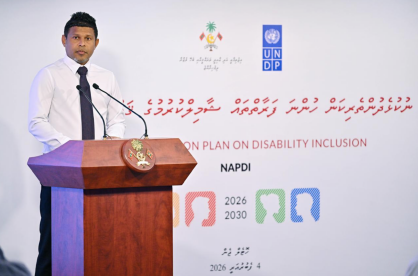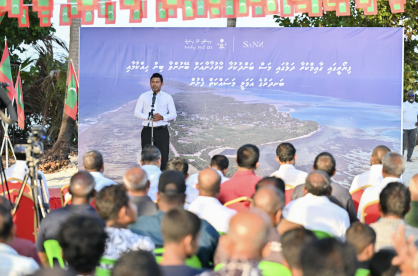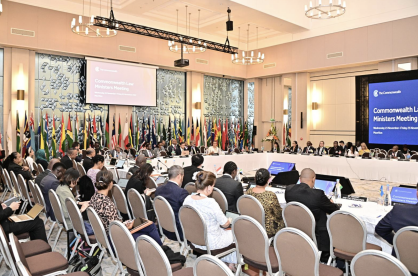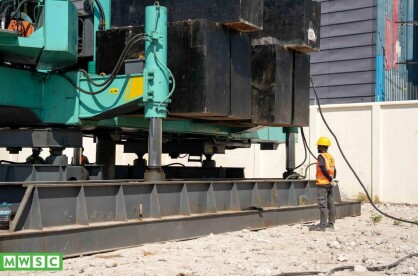The decentralisation dream
Decentralisation can be achieved; through political will to establish a truly innovative, inclusive, and healthy nation.

Decentralisation can be achieved; through political will to establish a truly innovative, inclusive, and healthy nation.

Decentralisation is a political ideology. Some administrations have sought more centralised, infrastructure development, while others aim to create a synergistic system with central hubs across the archipelago, while yet others take it a step further and promote jurisdictional decentralisation and federated states. The current administration, however, has been targeting the middle ground, and the results are beginning to be seen.
The long standing dream of former President Mohamed Nasheed, and the utopia that the people across the island nation have been seeking, is getting a fresh push since the amendments to the Decentralisation Act in 2019. This Act is the most amended law in the history of the Maldives, and rightfully so, as the concept to be applied here cannot be adopted from anywhere else. The system of laws and governance would need to be developed through trial and error, and that is exactly what has been done in recent times.
MFR sat down with Fathimath Afshan Latheef, CEO of the Local Government Authority, who shed quite the light on some of the more crucial challenges, the steps taken, and also the true individuality of local councils.
To recap, the new and improved governance system has discarded the earlier concept of Island Chief and Atoll Chief alongside their deputies, and installed a system of elected officials as councillors for these jurisdictions. The local council is in charge of all municipal responsibilities and the upkeep of their constituency, and has been, until 2019, dependant on state allocated finances to meet these responsibilities.
However, some of the major changes that has been implemented with the passage of the amendment in 2019 include financial independence and the opportunity for councils to generate revenue, as well as the crucial change in establishing a 33 percent quota for women in councils. Both these changes brought about their own expanding benefits and opportunities, and with the latest batch of councillors elected in early 2021, some of the positive impacts envisaged have become tangible.
Before delving into that component, it is important to understand the work being done on a national level to improve the efficiency of the local councils. Revenue collection and distribution is a huge, constantly prevalent obstacle, as the entrenched rules had required the councils to constantly go through specific ministries for each of the issues they were attempting to fix. This limits the scope of work, and extends timeframes extensively, that councils can commit to in the service of their constituency. Yet, the change in the law has eased this requirement, allowing the councils to generate the required finances needed through their own enterprise, and apply that funding where needed.
Furthermore, another element of financing that would empower councils will be transport fees. The system as it is today means the finances are still being gathered from central services, such as the Maldives Inland Revenue Authority (MIRA), and then allocated to the councils, yet this may not be the most efficient system. In some islands, the council handles the fees and licensing, while in others they do not, and the lack of a standardised, council-centric model creates further complications. The current model allows councils to gather finances, on paper, but the physical access to that capital is not as efficient as it should be.
For municipal services, such as waste management, power and sanitation, as well health and education, the councils work under a model that is more sustainable than before. SOEs such as WAMCO, Fenaka, STELCO can be employed by the councils, financed and assigned the responsibilities of meeting the demands of the people. Effectively, the councillors are the ones responsible for the municipal duties, and the delegation to SOEs ensures reliable provision of a specialised services.
However, issues do crop up when the SOEs and the councils do not have proper communication. The most recent spat between the Malé City Council and WAMCO created a conundrum where the people did not know who was shirking their responsibility, or whether their tax monies were being used efficiently. Transparency is key, and if the expectations held by the council over the respective SOE are met, then there would be more synergy between all administrative parties.
Land use plans depend on surveys, and the Survey Authority has been requested to conduct the necessary research so that the councils themselves can begin their planning and implementation. It is worrying, however, that 43 islands have not had their surveys done, although MVR9 million has been budgeted for it. However, when hiring private parties for survey work, and as the region’s have been divided into six clusters, requiring six parties, the requirements are so stringent that even with three announcements, no parties have still come forward to offer to do the work. Further refinement of the requirements need to take place before a working model can be implemented, and this entire process is slowing down the efficiency of the council’s work.

A keen interest in the empowerment of women and creating a gender balance in administration has led to amazing results. Now, the attention has swayed from simply administrative duties, to ‘doing more good’ for the communities, and the women of our nation are to thank for this. More women empowerment and societal programs have taken priority in the council’s works and strategic plans, and this elevates societies in the truly decentralised way that it is meant to happen.
When the newest batch of councillors were sworn in, their overall lack of administrative experience, expected education standards, and lack of political exposure was seen as a harbinger of imminent failure. However, this has proven to be the source of their current successes, with only 44 former councillors being reelected. Their work has been more community-centric, developing islands with green energy, developing human capital and representation, and many more innovative, fresh changes. Notable islands such as Rasdhoo with their switch to solar energy, Kuda Fari with their bike schemes and elderly healthcare services, and Maafaru with their resource sharing model between administrative offices, and even developing mobile applications for all council related services, has paved the way for truly Maldivian decentralisation.
To ensure that the councils are up to par, the LGA conducts a review of their work against a performance index, and awards rankings for the councils. With the new amendment, more attention is being given to development and projects rather than administrative efficiency alone, and this has motivated the councillors to not only work harder, but also defend their rankings if they believe they were assessed incorrectly. LGA is not the administrator of the councils, but takes more of a monitoring role, delegating to the Atoll Councils a more detailed monitoring and reporting aspect over the island councils, which are the main components of the local governance system.
Considerable efforts have also been made on capacity building, with international grants and organisations running training workshops for councillors in terms of finance, planning, and execution. While subsidiary laws are still being drafted and changing grudgingly slow with the new amendments, the outlook is hopeful. More changes can be expected to take place at ministerial levels, with changes to rules and guidelines, but this requires more synergy and discussion between all levels of national administration.
Decentralisation is an ideology, and through political will and determination, can this be achieved. Years before, this may have been a difficult dream, yet with new players coming into the political field, changes are already being seen. If this lesson can be applied in all levels of governance, perhaps a truly innovative, inclusive, and healthy nation may emerge.



